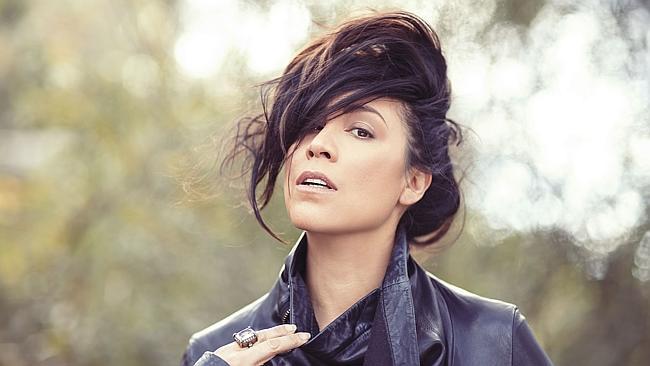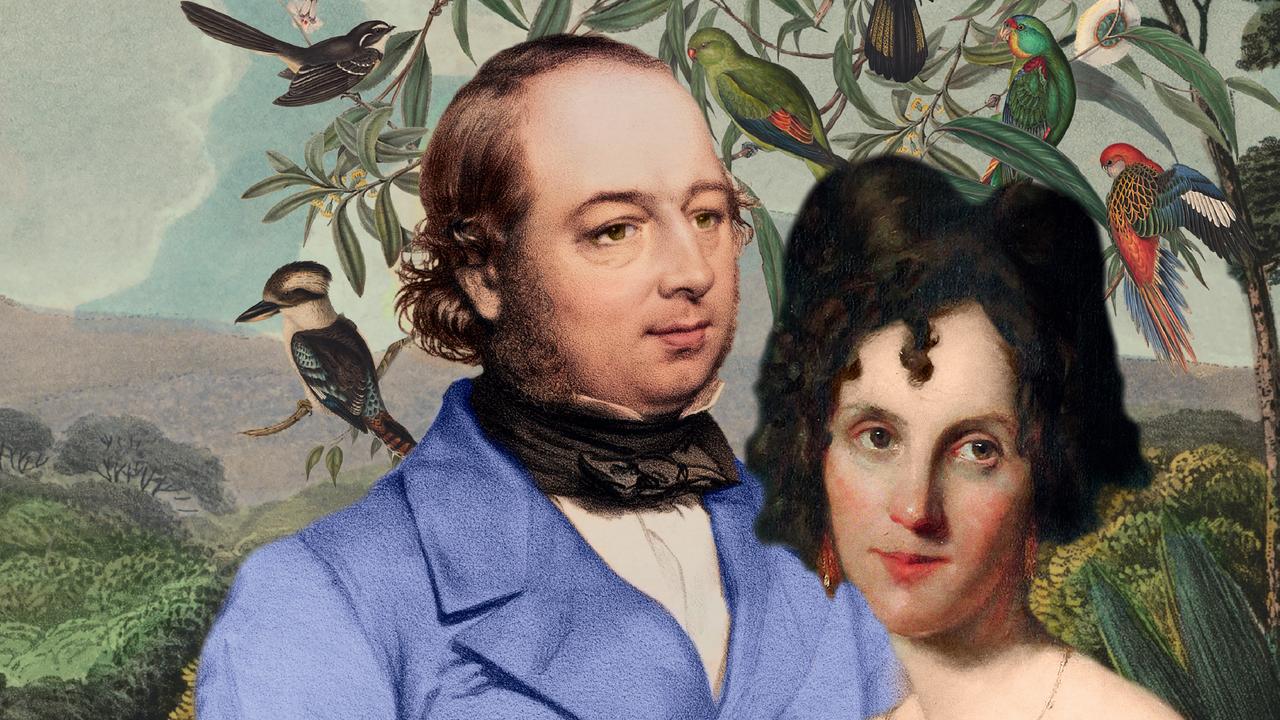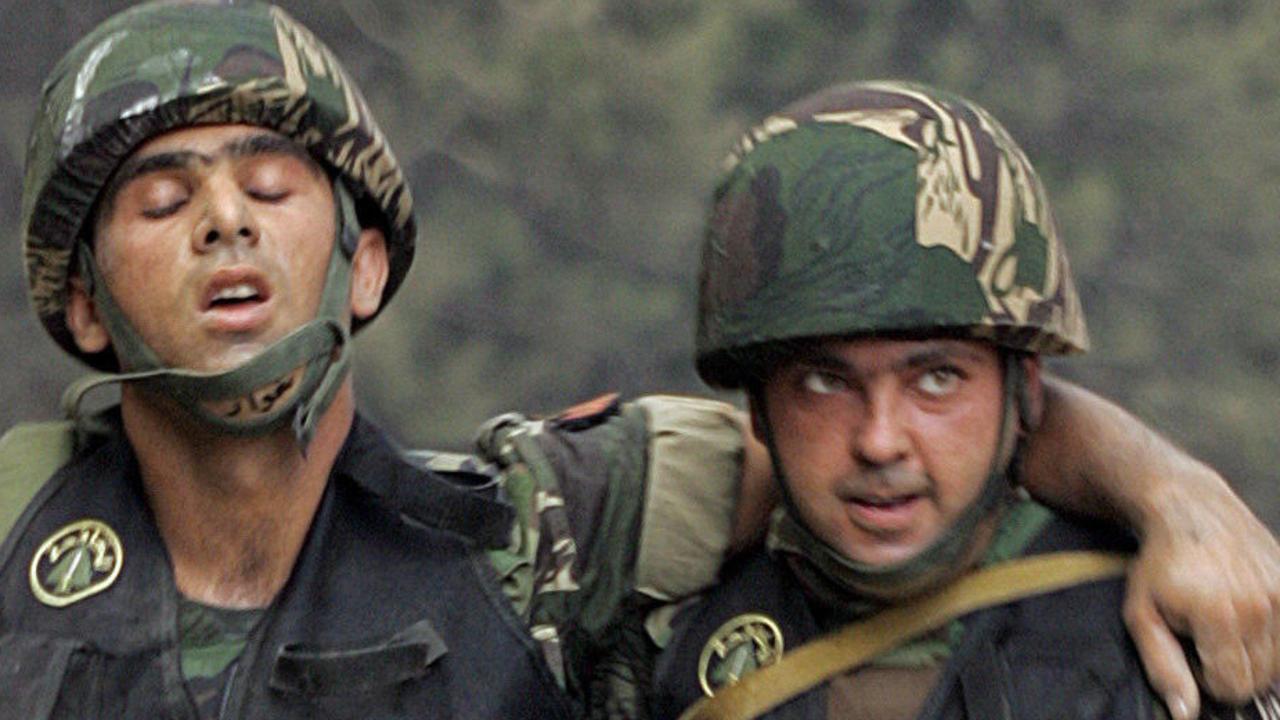Kate Ceberano’s tell-all book: music, marriage and what’s ahead
THE singer has been a mainstay of the Australian entertainment industry for 30 years — now she reveals all in a frank new autobiography.

Books
Don't miss out on the headlines from Books. Followed categories will be added to My News.
After 30 years as one of the most familiar faces in Australia’s entertainment business, Kate Ceberano is finally sharing her story.
The 47-year-old singer reveals all about the ups and downs of her career in her new autobiography, I’m Talking: My Life, My Words, My Music, out this week.
There have been highs: the massive pop smash Bedroom Eyes; a season-winning stint on Dancing With the Stars that breathed new life into her music career.
But there have also been a fair few lows, including a financially disastrous few years spent trying to crack the American market and an ill-fated stint as a judge on The X Factor.
In the book, she admits there have been times when she’s looked at the steadier career paths of her contemporaries — Tina Arena, Kylie Minogue — with a hint of envy. But, as Ceberano herself acknowledges, she always followed her own path.
This is a woman who turned down the chance to work with Minogue’s hit making team of Stock Aitken Waterman at the height of their late-80s success, opting instead to record a jazz album.
What was the process like, writing the book? You mention in the afterword that looking back on your younger years was ‘excruciating’.
It’s hard not to feel the indignities again and suffer the same regrets when you’re 30 years hence but you’re writing and you’re back there again. I said to the book’s researcher, it’s as though he went out and unearthed all those bones I’ve buried — and they’ve come back in all states of decay. After the research was done, I was fully committed to stopping it. I thought, I just don’t know if I’m going to enjoy this process very much.
You were a remarkably precocious kid — you moved out of home and into your own flat at 15.
I was an eccentric. I thought of myself as Audrey Hepburn in Breakfast at Tiffany’s. I listened to jazz on my record player, I caught trains to and fro to gigs, and I had no concept of security. I was like a beatnik, and I was only a teenager.
Are you happy your parents gave you that freedom?
Being a mum now, I do think parents should know where their kids are. You look at a young artist like Lorde and it’s clear she knows exactly what she’s doing, which is what I was like. I don’t think my daughter (Gypsy) is going to be that way — she’s 10 now, but she’s much younger and more innocent than I was even at that age.
Along with the big hits of your career — Bedroom Eyes, Pash — there have been low points. In the mid-90s, you had an entire album shelved in a record company reshuffle. Did you ever want to give up?
It’s like tasting chocolate when you’ve never been offered sugar before: you could try to go back to a normal life, but you can’t really. I got used to being admired and watched, having an effect on a group of people — that’s heady stuff. I think it’s one of the primary causes for depression in some artists, because I don’t think you can live without it once you’ve experienced it. It’s addictive.
So you never wanted to do anything else?
There was a time I thought I’d going to do acting. I went to an acting school and I said ‘I would love to be able to get the technique, because I know I’ve got the chutzpah.’ The teacher said, ‘Don’t you sing? Can you sing me a song?’ So I did and he said, ‘Ah, you don’t need to be an actor’. It was like, ‘Just be grateful you can at least do that!’
You mention in the book you’ve had a rocky ride with the media over the years — that issues have been made of things like your Scientology …
Look, I can’t blame the media, because it’s an essential tool: you couldn’t survive without it. But it’s like that flinch you have when you hear your voice back on tape — you experience that same flinch when you hear or read your story, but a journalist has turned you into something that’s just slightly different to the way you see yourself. It only has to be slight. There’s something so final about a journalist’s statement about who you are — and then you have to live it. You either endure it, or you kill it — maybe this book will help kill it!
You’re very frank in the book about your experience as a judge on the first, unsuccessful Australian version of The X Factor back in 2005. You said the judges were pitted against each other and you “wanted to walk out.”
I’m actually a perfect judge for the [talent show] format as it is today, I know I am. When I look at someone like Harry Connick Jnr on American Idol, I feel very similar to him. What happened [behind the scenes of X Factor] was wrong, and I was told I shouldn’t talk about it, but I’m glad I did. Otherwise no-one would really know how the inner workings of that show made me doubt myself. I wasn’t in a position to help and mentor in the way I know I can.
You open up about your relationship with your husband, Lee Rogers, too. It sounds like he was a bit of a Bondi wild child when you met?
He was burning bright and attracting attention. I just love people who are able to do that — it’s not enormously Australian to seek attention like that. I have it too, and to this day we understand it in each other — he sees that need in me and he doesn’t try to stop it, nor do I try to stop him.
Lee became your manager for a while — an arrangement that you say almost broke you up.
For a start, you don’t forfeit one partner’s career for another. We learned that the hard way. He’s an artist in his own right, and he’s made phenomenal films. I was in [Rogers’ 1997 film] Dust off the Wings, which was about drug culture and sex in Bondi, and it was not to my taste — but that’s fine, that’s the point of art. We shouldn’t all agree. If you’re going to marry an artist, you’d better expect some pretty feisty arguments! You don’t want to marry a carbon copy of yourself — that’s just narcissism. Marry someone who makes you question things and stand up for what you believe in.
Last year you released your first album of original material in a decade, Kensal Road. Did you think you might not get that chance again?
It’s all to do with people for me, after 30 years in the business — the personal relationships are what counts. You just need to have someone in your corner. I would hope Sony let me continue to release my own original material, because I’m not ready to retire into covers albums yet. So if that’s the next album they want to make, I may have to leave. All I know is I’ve got to make something new.
What are your career goals, at this point? Is there anything left you haven’t done yet?
I would love international success. I would love to do something that people need, that goes everywhere. When Sade broke with her Diamond Life record, it was just something people needed at the time. Same with Adele. The artist is always seeking to find that elusive way to be of service to their public, to be needed. That’s what I want. Who knows, it might be a case of finding a DJ I love, like David Guetta, and saying ‘Help me go there.’
We have to ask about your early single Young Boys Are My Weakness. 25 years later, it remains the most hilariously camp song in the world.
It is hilarious! I was only 19 at the time, but it’s not a song I can sing as an adult. I give it to all my favourite drag queens who do me better than I do — they’re welcome to it. It’s going to seem a lot cooler when I bring it out again at 70 — it’ll make more sense than performing it now I’m middle-aged.
I’m Talking: My Words, My Life, My Music by Kate Ceberano with Tom Gilling is out on March 25 through Hachette Australia. You can purchase it in PRINT or as an EBOOK.



